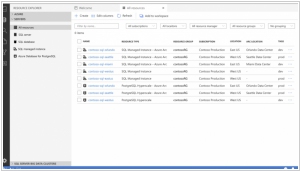Azure Arc vs VMware vCloud
July 23, 2023 | Author: Michael Stromann
11
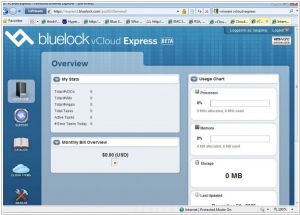
Start moving toward secure cloud computing with VMware vCloud solutions and services. Leverage the power of cloud computing while retaining the flexibility and open standards to support your existing IT infrastructure. Enabling IT as a service through cloud computing gives you a more efficient, flexible and cost-effective model.
Azure Arc and VMware vCloud are two solutions that tackle different aspects of multi-cloud management. Azure Arc, developed by Microsoft, extends Azure's management capabilities to resources outside of the Azure cloud environment, including on-premises data centers and other cloud providers. With Azure Arc, organizations can use Azure's familiar tools and services to manage and govern these distributed resources, providing a unified and consistent management experience. On the other hand, VMware vCloud is a cloud management platform that focuses on streamlining the deployment and management of VMware-based virtualized infrastructures. It allows organizations to build and manage private and hybrid clouds using VMware's virtualization technology. While Azure Arc emphasizes a multi-cloud and hybrid approach, VMware vCloud centers on optimizing VMware virtualized environments.
See also: Top 10 Private Cloud platforms
See also: Top 10 Private Cloud platforms
Azure Arc vs VMware vCloud in our news:
2020. Microsoft brings data services to its Arc multi-cloud management service
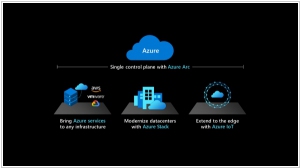
Microsoft has introduced a significant update to its Arc multi-cloud service, empowering Azure customers to operate and oversee workloads across various clouds, including those offered by Microsoft's competitors, as well as their on-premises data centers. Initially unveiled at Microsoft Ignite in 2019, Arc was designed not only to assist users in managing their servers but also to enable them to run data services such as Azure SQL and Azure Database for PostgreSQL in proximity to their data. Today, the company fulfills this commitment by launching a preview version of Azure Arc-enabled data services, which unsurprisingly includes support for Azure SQL and Azure Database for PostgreSQL. Furthermore, Microsoft has made the core feature of Arc, Arc-enabled servers, generally accessible. These tools form the foundation of the service, empowering enterprises that employ the standard Azure Portal to administer and monitor their Windows and Linux servers throughout their multi-cloud and edge environments.
2020. Azure Arc brings its Kubernetes service into public preview
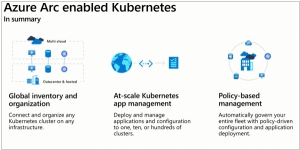
Microsoft has unveiled that Azure Arc, its cloud resource management service designed to operate across various environments, including rival clouds such as AWS and GCP, as well as platforms like Red Hat's Open Shift, is introducing Azure Arc-enabled Kubernetes in its public preview. This update empowers users to configure and oversee Kubernetes clusters across their data centers, edge locations, and public clouds. Additionally, Microsoft announced the inclusion of support for SUSE Linux Enterprise Server and the SUSE CaaS Platform within Azure Arc's capabilities.
2019. VMware completes $2.7 billion Pivotal acquisition
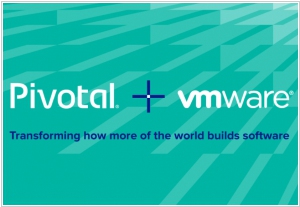
VMware has successfully completed the $2.7 billion acquisition of Pivotal, a private cloud platform. This acquisition serves as another crucial step for VMware as it strives to transition from solely a virtual machine company to a cloud-native provider capable of managing infrastructure across various environments. This addition aligns with VMware's recent acquisitions of Heptio and Bitnami, further reinforcing its strategic vision. The ultimate goal is to seamlessly integrate these developments into VMware Tanzu, a comprehensive management platform designed to unify Kubernetes containers and VMware virtual machines.
2017. VMware Cloud is now live on Amazon Web Services
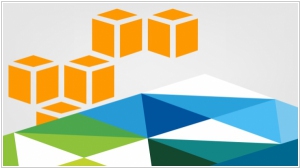
Last autumn, VMware and AWS announced a strategic partnership, and now they have unveiled a unified solution for enterprises called VMware Cloud on AWS. VMware Cloud on AWS offers customers a seamlessly integrated hybrid cloud environment that maintains consistent architecture, capabilities, and operational experience across their on-premises vSphere-based infrastructure and AWS. Although AWS operates its own virtual machines (VMs), they differ from those used by VMware in data centers. This disparity poses management challenges for companies seeking to utilize both platforms. By enabling organizations to migrate to AWS while retaining their VMware VMs in the public cloud, they can enjoy the benefits of both worlds without encountering management complexities.
2015. VMware will make Google Cloud Platform available to its customers
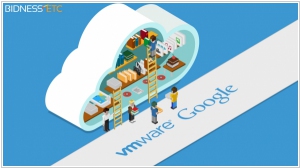
Google and VMware have joined forces to offer selected services from the Google Cloud Platform to VMware customers through vCloud Air, VMware's hybrid cloud platform. Later this year, vCloud Air users will gain access to Google's BigQuery analytics, Google Cloud Storage, as well as Google's Datastore and DNS services. Other Google services may also become available in the future. This collaboration can be seen as a win for both companies. VMware gains four valuable Google services, including the robust BigQuery analytics, which can help attract enterprise customers. Meanwhile, Google has the opportunity to showcase its top-notch intellectual property to the enterprise cloud users it seeks. Google aims to strengthen its hybrid cloud offerings, while VMware aims to demonstrate its cloud platform's compatibility with major players like Amazon Web Services (AWS).
2014. Microsoft Azure appliance makes comeback
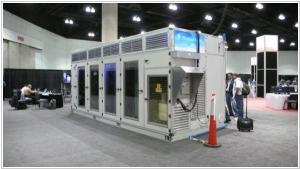
Microsoft is introducing a fresh Azure appliance that enables companies or service providers to implement it within their own data centers. Dubbed the Cloud Platform System, this novel appliance will operate using identical Azure APIs, services, hypervisor, and all other components as the Azure public cloud, while effortlessly establishing connections with the Azure public cloud. Notably, Microsoft's past exploration of Azure appliances adds to the appeal of this appliance. Previously, the company had contemplated selling appliances to select large service provider partners, like HP, and had even launched a program to assist web hosts in launching their own versions of Azure. However, both initiatives seemed to have been abandoned due to various business and technological factors. Nevertheless, the appliance has made a resurgence.
2014. VMware's cloud to support Docker, Google and Pivotal containers

VMware is collaborating with Docker, Google, and Pivotal to ensure seamless compatibility between container technology and its virtualization technology. This joint effort will enable developers and operations staff to utilize the Docker Engine alongside VMware's vSphere hypervisor and vCloud Air environment. VMware will also engage in collaborative projects with Docker on various open-source container initiatives within the Docker platform. The company is committed to ensuring that future Docker projects seamlessly integrate with the broader VMware platform. Additionally, VMware's software will effectively support Google's Kubernetes container management system. In its partnership with Pivotal, VMware has already been leveraging containers in conjunction with virtual machines as part of its application development platform since 2011.
2012. Surprise! VMWare has joined OpenStack
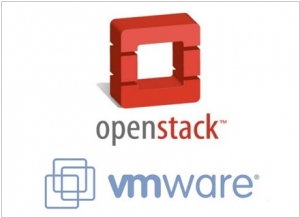
Recently we found out that the open cloud platform alliance OpenStack includes several members from EMC. It was a surprise, because EMC owns VMWare - the direct competitor of OpenStack. We thought that it was a little misunderstanding in the Swedish family EMC-VMWare. But this wasn't the last surprise in this story. In the end of the last week, VMWare personally became the "Gold member" in OpenStack. (Recall, OpenStack was founded two years ago in order to struggle against the dominance of Amazons's public cloud and VMWare's data-center cloud management systems). Together with VMWare two more giants: Intel and NEC joined OpenStack on Friday. So now, on the cloud platform market we have the confrontation: Amazon vs "Everyone else". You may think that the forces are not equal, but ... ***
2011. VMware wants to revolutionize PaaS market
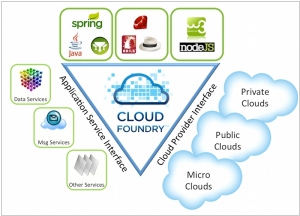
We have already noted that PaaS (Platform as a Service) - is the future of cloud platforms. For now the PaaS market is dominated by Salesforce (Force.com), Microsoft (Windows Azure) and Google (Google App Engine). Recently Amazon also entered this space with AWS Elastic Beanstalk. Of course VMWare also has its own plans regarding this market. Like Amazon, VMWare still paid more attention to another cloud technology - IaaS (Infrastructure as a Service). Its product vCloud enables service providers and enterprises to create cloud platforms that mimic Amazon EC2. But, frankly speaking, VMWare hasn't achieved great success in the IaaS-space so far, because it didn't offer something revolutionary. Having analyzed these mistakes, the company is now entering the PaaS market. And here it really wants to make a revolution. ***
2010. VMWare wants to become Microsoft of the Cloud Computing era
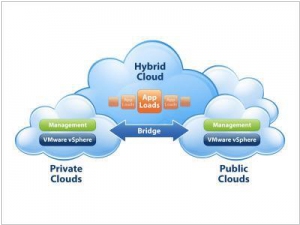
Previously, when enterprise software was running on servers and desktops, Microsoft ruled the IT market. It supplied the operating systems for servers and desktops, as well as tools for developing applications for these OS. As the cloud technologies emerge, servers and desktops are no longer the central objects of IT infrastructure. Software moves to private and public clouds. Desktops are used just as thin clients (terminals with a browser) and the need in servers disappears at all. And since the basis of cloud technology is virtualization - the power goes to the company, that owns 80% of the virtualization market - VMWare. ***

